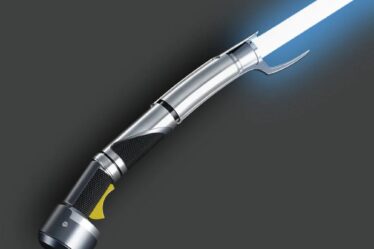
As global climate commitments intensify, the concept of renewable energy procurement is evolving. RE100, a global initiative of companies committed to 100% renewable electricity, has driven significant progress. However, merely matching annual energy consumption with renewables is no longer enough. The emergence of 24/7 carbon-free energy (CFE) marks the next step, with hourly matching at its core. This advanced approach is being championed by forward-thinking RE100 companies aiming for deeper decarbonization.
From Annual Matching to 24/7 CFE
Traditional renewable energy procurement often involves annual energy matching through Energy Attribute Certificates (EACs). While effective for promoting renewable investments, this approach allows for mismatches in the timing of energy production and consumption. For instance, solar energy generated during the day might be matched against energy consumed at night.
24/7 CFE addresses this by requiring energy consumed to be matched with renewable generation on an hourly basis. By leveraging granular EACs with timestamps, companies ensure their energy use is truly carbon-free at every hour, creating a more impactful alignment with sustainability goals.
RE100 Companies in Leading the Shift
RE100 companies are uniquely positioned to drive the adoption of 24/7 CFE. These organizations, already committed to 100% renewable energy, are expanding their efforts to align with this more rigorous standard. Companies like Google, Microsoft, and Iron Mountain are trailblazing examples, demonstrating how businesses can transition from annual energy claims to real-time carbon-free operations.
How 24/7 CFE Works?
At the heart of 24/7 CFE is the principle of matching electricity consumption with renewable generation in real-time. This involves:
- Granular EACs: Certificates with hourly timestamps that validate renewable generation and consumption alignment.
- Data Integration: Using advanced digital platforms to track energy generation and usage across grids.
- Grid Collaboration: Ensuring that renewable energy comes from the same grid where the energy is consumed.
Unlike traditional renewable procurement, this process requires precise synchronization of energy flows, making it more complex but far more effective in reducing carbon footprints.
Lessons from RE100 Leaders
Google: Pioneering Real-Time CFE
Google has set an ambitious goal of achieving 24/7 CFE across its global operations by 2030. By combining diverse renewable assets like wind and solar with battery storage, the company ensures a consistent carbon-free energy supply. Google’s approach underscores the importance of diversifying energy portfolios to meet hourly matching requirements.
Microsoft: Transparent and Collaborative Energy Models
Microsoft focuses on leveraging granular data and building partnerships with local energy providers to implement its 24/7 CFE strategy. The company’s emphasis on transparency and collaboration offers a replicable model for others seeking to adopt similar practices.
Iron Mountain: Adopting Innovative Agreements
Iron Mountain has embraced 24/7 CFE through Power Purchase Agreements (PPAs) and energy storage solutions. Its ability to integrate real-time renewable energy matching into data storage operations highlights how even energy-intensive industries can contribute to a carbon-free future.
Challenges in Achieving 24/7 CFE
Despite its potential, transitioning to 24/7 CFE is not without obstacles:
- Data Complexity: Tracking energy generation and consumption on an hourly basis requires robust data systems and infrastructure.
- Grid Limitations: Ensuring that renewable energy comes from the same grid poses logistical and regulatory challenges.
- Cost Implications: The need for advanced technologies, such as energy storage and granular tracking systems, can increase upfront costs.
Opportunities in the 24/7 CFE Era
As companies address these challenges, they unlock opportunities to:
- Accelerate Grid Modernization: The demand for real-time energy data fosters investment in grid digitalization.
- Enhance Carbon Accounting: Hourly matching ensures accurate tracking of carbon reductions, building stakeholder trust.
- Drive Innovation: Developing storage and hybrid renewable solutions pushes technological advancements that benefit the entire energy sector.
Policy Support and the Path Forward
Regulatory frameworks are catching up with corporate ambitions. In Europe, policies like the Renewable Energy Directive (RED) encourage granular energy matching. By 2030, grid-connected systems such as electrolysers will be required to match their energy consumption with renewable production on an hourly basis.
As these policies gain traction, they will provide much-needed support for companies adopting 24/7 CFE, creating a more favorable environment for innovation and adoption.
Conclusion: Leading the Charge Toward Sustainability
The journey to 24/7 carbon-free energy is challenging but essential for achieving meaningful decarbonization. RE100 companies are at the forefront of this transition, showcasing how businesses can lead the charge toward a sustainable future. By leveraging granular energy tracking, diversifying renewable portfolios, and collaborating with energy providers, these organizations set an example for others to follow. The lessons learned from their experiences will pave the way for a cleaner, more sustainable energy grid that benefits all.


